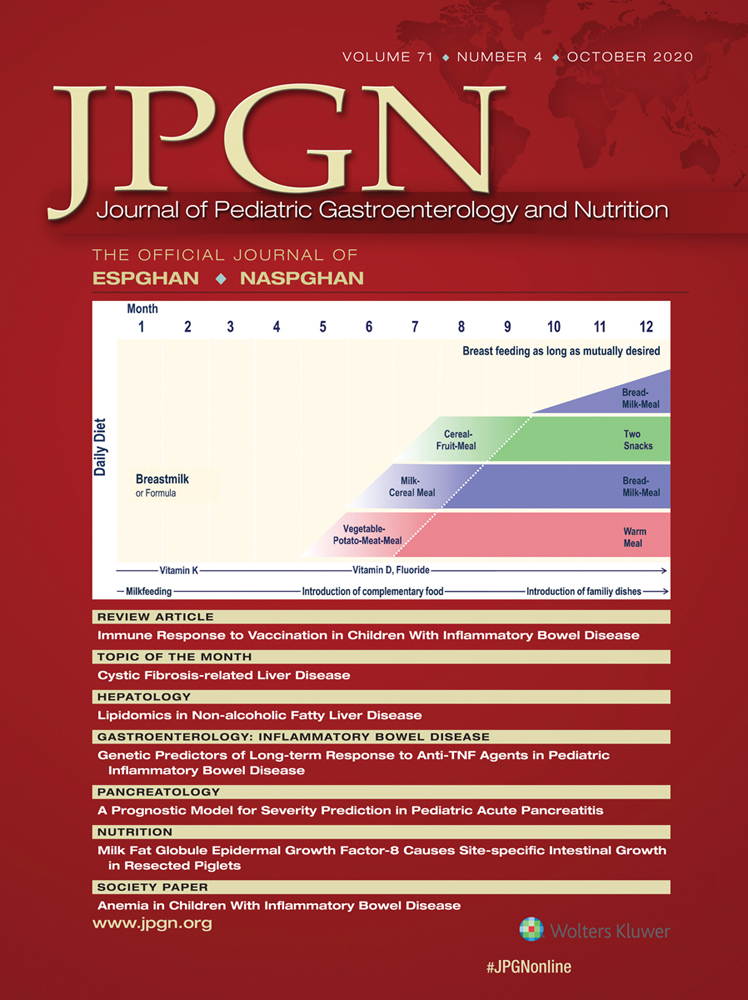In the Short-term, Milk Fat Globule Epidermal Growth Factor-8 Causes Site-specific Intestinal Growth in Resected Piglets
Supplemental digital content is available for this article. Direct URL citations appear in the printed text, and links to the digital files are provided in the HTML text of this article on the journal's Web site (www.jpgn.org).
Disclosures: Research was supported by Empire Biotechnologies, Inc., who supplied MFG-E8 in-kind.
ABSTRACT
Objectives:
Short bowel syndrome (SBS) remains the leading cause of neonatal intestinal failure. Milk fat globule epidermal growth factor-8 (MFG-E8), present in human milk, has homology with epidermal growth factor (EGF), known to enhance adaptation in SBS. In this pilot study, the role of oral MFG-E8 treatment in SBS was explored in neonatal piglets.
Methods:
Neonatal piglets underwent 75% intestinal resection, either distal (jejunal-colonic [JC] anastomosis) or mid-intestinal (jejunal-ileal [JI] anastomosis). Piglets were randomized to intragastric treatment with MFG-E8 (5 mg/kg per day) or saline and were maintained on parenteral nutrition and enteral nutrition for 7 days. Adaptation was assessed by intestinal length and weight, histopathology, fecal fat analysis and RT-qPCR analysis of mucosal transcripts, including growth factors.
Results:
JI piglets demonstrated intestinal lengthening (P < 0.001), 2-fold greater in ileum than jejunum (P = 0.02), where lengthening was increased by MFG-E8 treatment (P = 0.02). JC piglets did not exhibit jejunal lengthening, regardless of treatment. Fat absorption was greater for JI piglets (P = 0.02), unaffected by treatment. In JI piglets, expression of Egf was increased in the ileum (P < 0.01) and MFG-E8 treatment increased Egfr (receptor) expression (P = 0.02).
Conclusions:
MF-EG8 demonstrated site-specific trophic effects, only with JI anatomy. This may limit the utility of this treatment for SBS, except for rare patients with retained ileum. The mechanisms of these site-specific effects, however, and the role of MFG-E8 in neonatal gut growth and in diseases, such as necrotizing enterocolitis that commonly target ileum, warrant further exploration.




